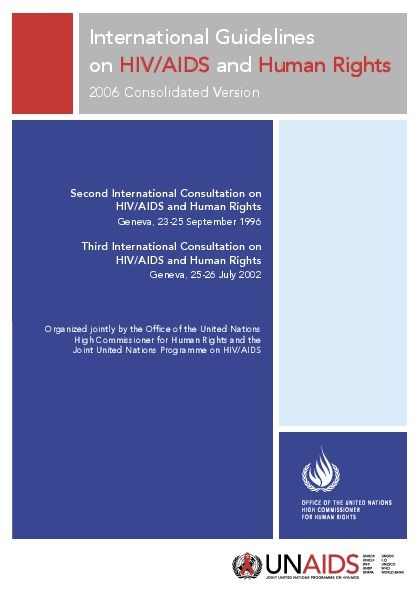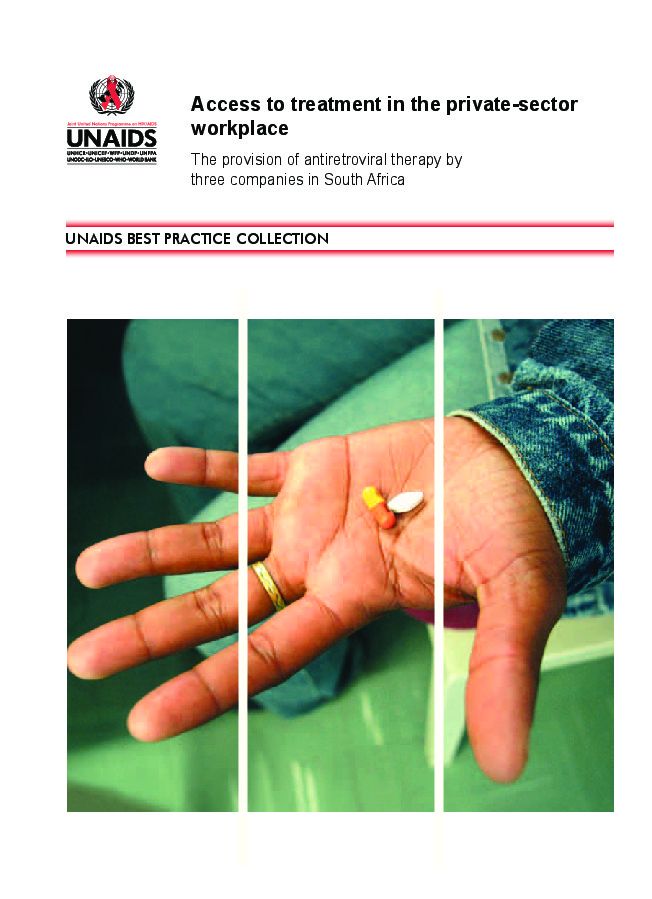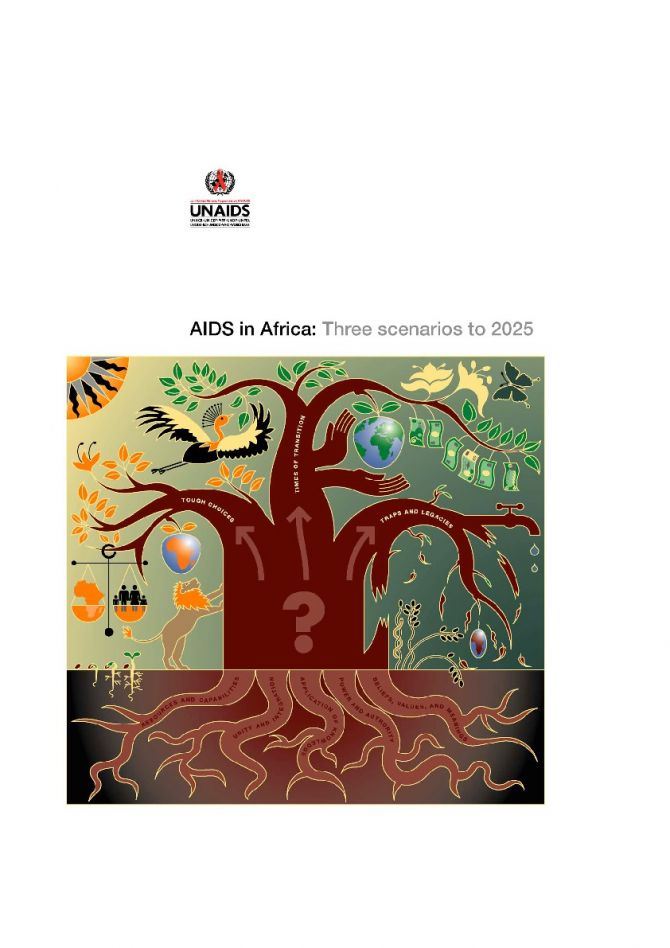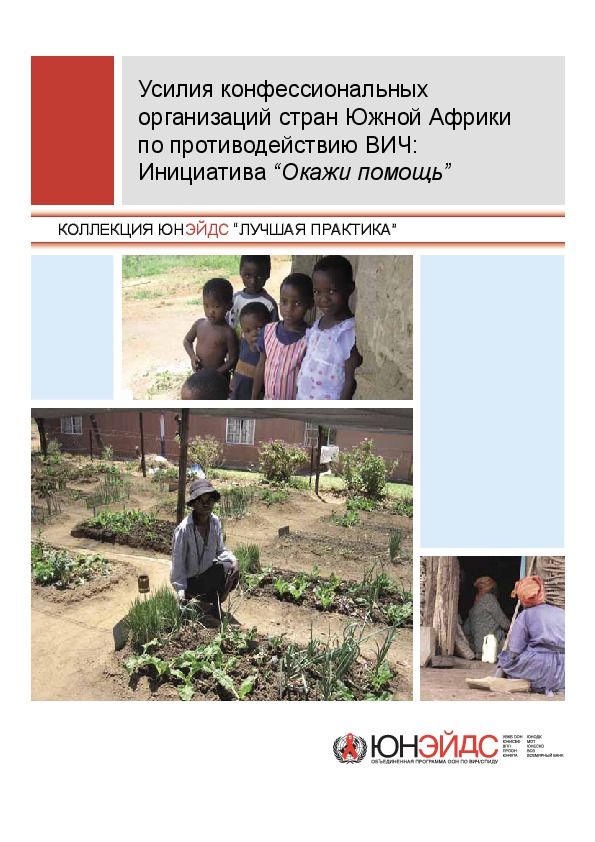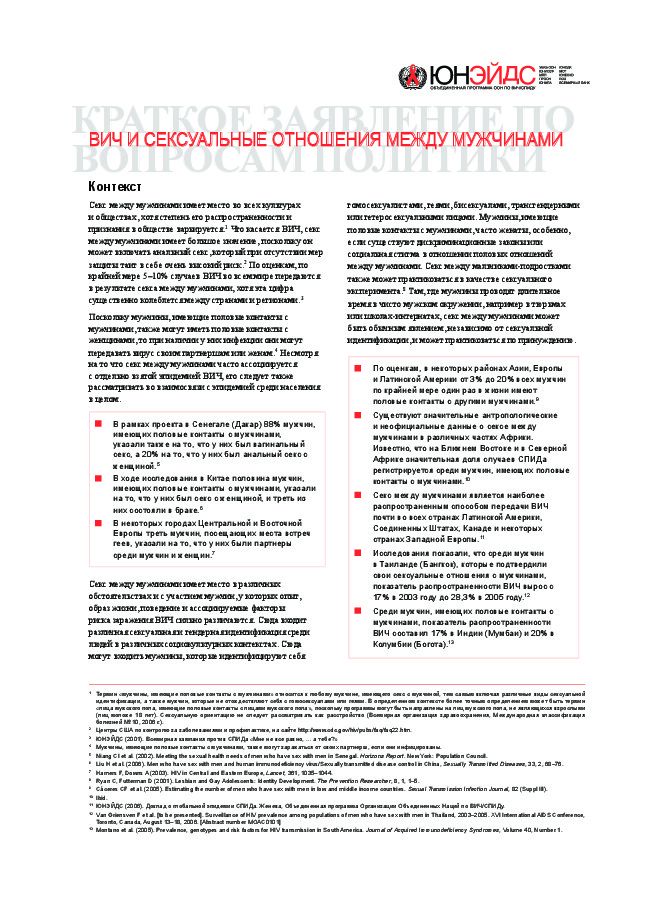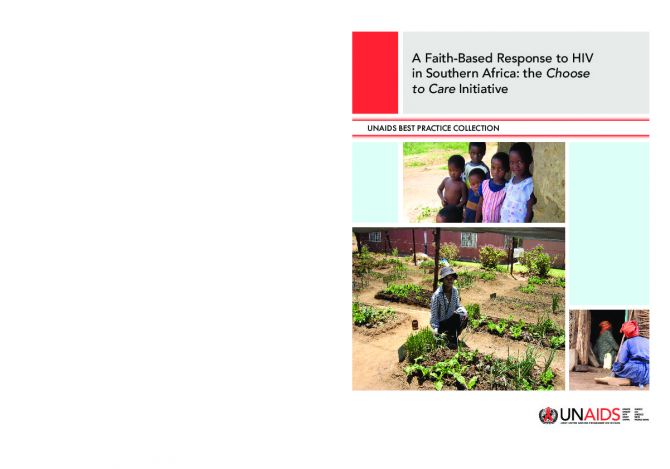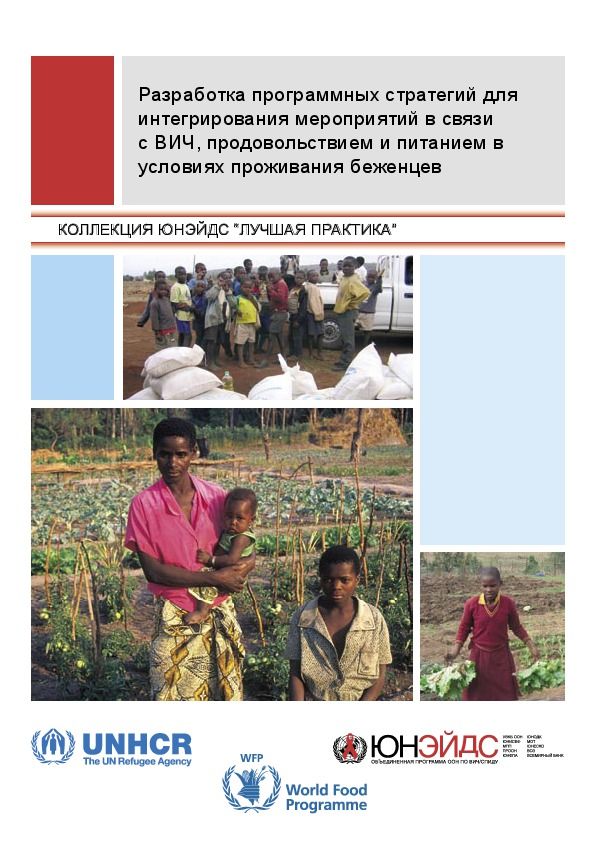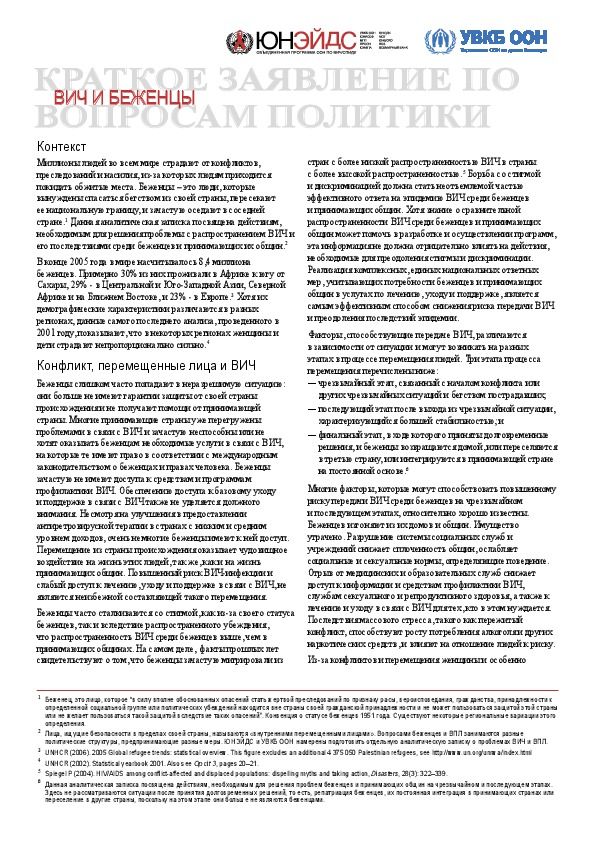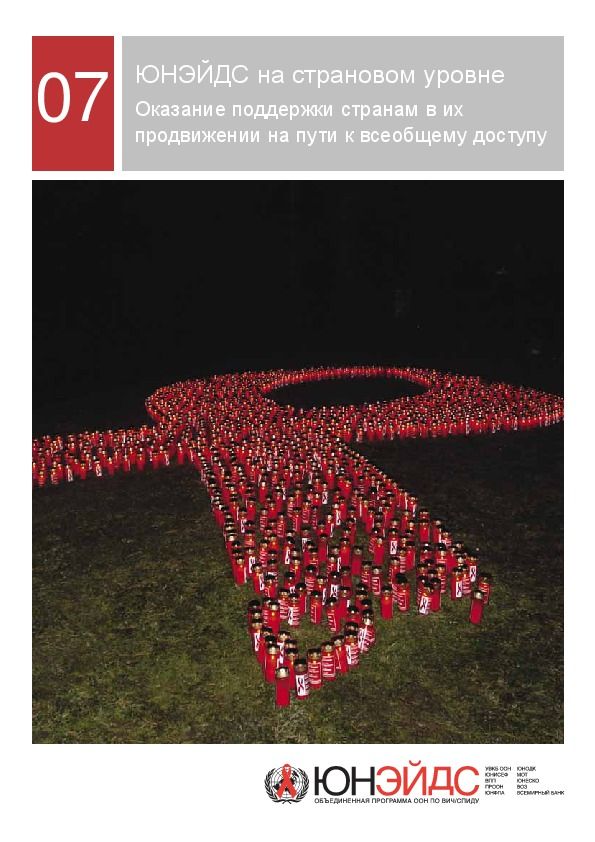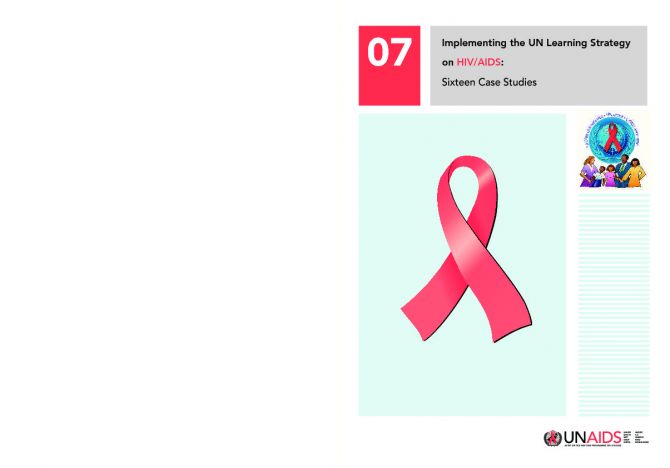Documents
International Guidelines on HIV/AIDS and Human Rights
23 октября 2006 года.
The International Guidelines on HIV/AIDS and Human Rights arose because of various calls for their development in light of the need for guidance for Governments and others on how to best promote, protect and fulfil human rights in the context of the HIV epidemic. During the first International Consultation on AIDS and Human Rights, organized by the United Nations Centre for Human Rights, in cooperation with the World Health Organization, in Geneva, from 26 to 28 July 1989, participants discussed the possible elaboration of guidelines to assist policymakers and others in complying with international human rights standards regarding law, administrative practice and policy
Documents
Access to treatment in the private-sector workplace The provision of antiretroviral therapy by three companies in South Africa
23 октября 2006 года.
Access to treatment in the private-sector workplace; the provision of antiretroviral therapy by three companies in South AfricaAntiretroviral therapy (ART) is having a huge impact on the lives of those who have access to it. For them, AIDS has become a manageable condition rather than a death sentence. However, for the vast majority of people living with HIV, nothing has changed because neither they nor their countries’ health-care systems can afford to pay for antiretroviral therapy.One source of hope comes from the business sector. The workplace—both private and public—provides many opportunities for extending access to treatment, through occupational health schemes and health insurance schemes. A number of companies now have experience in providing antiretroviral therapy for their employees (and, in some cases, also for dependants). Given the impact of the epidemic, there is a clear economic advantage for companies in offering employees access to treatment and in demonstrating a strong corporate responsibility.After a brief description of the important components of workplace programmes on HIV/AIDS, this case study features three companies in South Africa that are providing antiretroviral therapy to their employees: AngloAmerican, BHP Billiton and Eskom. Detailed descriptions are given of the companies’ antiretroviral therapy and care-and-support programmes, with an analysis of their differing approaches and shared challenges. Public health provision should be strengthened, not undermined, by the contribution of the private sector to HIV and AIDS treatment. The companies profi led in this report are working with government, communities and civil society to extend treatment nationwide, through various projects and programmes and by setting an example of sustainable access to treatment and care.
Documents
AIDS in Africa: Three scenarios to 2025
12 декабря 2006 года.
This project uses stories rather than projections to explore the future of AIDS in Africa over the next 20 years. Statistics may give a succinct and tragic snapshot of recent events, but they say little of the AIDS epidemic’s wider context, or its complex interconnections with other major issues, such as economic development, human security, peace, and violence. Statistics can only hint at the future.
Documents
Усилия конфессиональных организаций стран Южной Африки по противодействию ВИЧ: Инициатива “Окажи помощь”
09 января 2007 года.
В данном исследовании описана работа Инициативы “Окажи помощь” католической церкви стран Южной Африки. Показано, что эффективное расширение масштабов программ продиводействия ВИЧ и работа по продвижению к реализации всеобщего доступа не обязательно должны представлять собой продолжение единой централизованной службы. Посредством Инициативы “Окажи помощь”, Церковь увеличила масштабы предоставления услуг за счет репликации программ меньшего масштаба, коренящихся в общинах и направленных на удовлетворение непосредственных нужд общин. В исследовании показано, что такой подход является эффективным при наличии общих руководящих принципов и централизованной
поддержки.
Documents
Краткое заявление по вопросам политики: ВИЧ и сексуальные отношения
19 января 2007 года.
Секс между мужчинами имеет место во всех культурах
и обществах, хотя степень его распространенности и
признания в обществе варьируется.1 Что касается ВИЧ, секс
между мужчинами имеет большое значение, поскольку он
может включать анальный секс, который при отсутствии мер
защиты таит в себе очень высокий риск.2 По оценкам, по
крайней мере 5–10% случаев ВИЧ во всем мире передаются
в результате секса между мужчинами, хотя эта цифра
существенно колеблется между странами и регионами.
Documents
A Faith-Based Response to HIV in Southern Africa: the Choose to Care Initiative
27 января 2007 года.
This study describes the work of the Choose to Care initiative of the Catholic Church in Southern Africa which began in 2000. It shows that effective scaling-up of programmes in the response to HIV does not necessarily have to be the expansion of a single central service. Working through the diocesan and parish system, coordinated by the AIDS Office Southern African Catholic Bishops’ Conference, and originally funded by the Catholic Mission Medical Board and other Catholic funding agencies, the Catholic Church scaled up service provision by the replication of smaller scale programmes rooted in and responsive to the needs expressed by local communities in this five-country area. This study shows that such an approach is effective when undertaken within common guidelines and given central support.
Documents
Разработка программных стратегий для интегрирования мероприятий в связи с ВИЧ, продовольствием и питанием в условиях проживания беженцев
15 февраля 2007 года.
В 2003 году УВКБ ООН, МПП и ЮНИСЕФ предприняли совместные действия для разработки - путем проведения полевых исследований среди общин беженцев в различных районах Африки - ряда стратегий по применению мер вмешательства на основе продовольствия и питания с целью поддержки действий по профилактике ВИЧ, уходу, лечению и ока3анию помощи людям живущим с ВИЧ. Эта важная совместная инициатива появилась благодаря признанию уникальности условий проживания беженцевю БЫло также признана необходимость проведения научных исследований в среде беженцев и с привлечением их участия. В настоящем документе из серии "Лучшая практика" рассматриваются процесс исследований и данные, полученные в результате осуществления этой межучрежденческой инициативы.
Documents
Краткое заявление по вопросам политики: ВИЧ и беженцы
15 февраля 2007 года.
Миллионы людей во всем мире страдают от конфликтов, преследований и насилия, из-за которых людям приходится покидать обжитые места. Беженцы – это люди, которые вынуждены спасаться бегством из своей страны, пересекают ее национальную границу, и зачастую оседают в соседней стране. Данная аналитическая записка посвящена действиям, необходимым для решения проблемы с распространением ВИЧ и его последствиями среди беженцев и принимающих их общин.
Documents
ЮНЗЙДС на страновом уровне: oказание поддержки странам в их продвижении на пути к всеобщему доступу
15 февраля 2007 года.
В настоящей публикации рассматривается работа ЮНЭЙДС на страновом уровне в 2005 году и начале 2006 года в контексте региональных и глобальных мероприятий по обеспечению всеобщего доступа к лечению. В течение этого периода Объединенная программа Организации Объединенных Наций по ВИЧ/СПИДу (ЮНЭЙДС) сосредоточила свою поддержку странам на двух основных направлениях. Первое предполагало улучшение структуры мероприятий по противодействию СПИДу на фоне растущей сложности, увеличения ресурсов и вовлечения новых действующих лиц. Вторым приоритетом работы на уровне стран стало обеспечение политической приверженности делу значительного расширения услуг по профилактике, лечению, уходу и поддержке.
Documents
Implementing the UN Learning Strategy on HIV/AIDS: Sixteen Case Studies
01 мартаа 2007 года.
The Committee of Cosponsoring Organizations (CCO) of UNAIDS approved a Learning Strategy adopted in 2003 to help UN system staff develop competence on AIDS issues. This report is comprised of UN AIDS Learning Strategy case studies from sixteen countries: Botswana, Brazil, Burkina Faso, Cape Verde, India, Indonesia, Macedonia, Madagascar, Morocco, Nigeria, the Pan American Health Organization headquarters (United States), Pakistan, Paraguay, Vienna (Austria), Viet Nam, and Yemen. It presents each country’s unique experience in implementing the strategy since its adoption.

